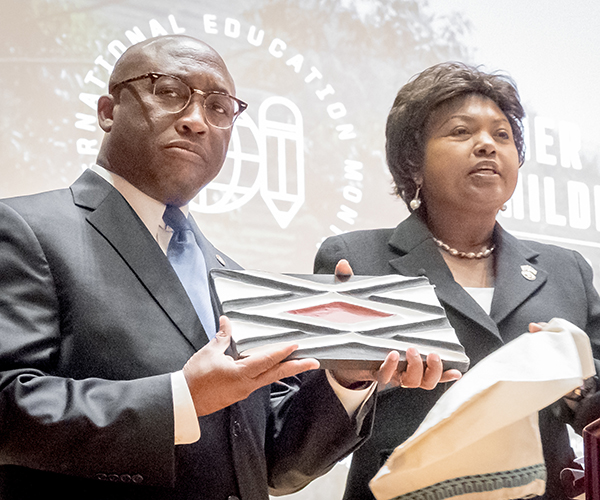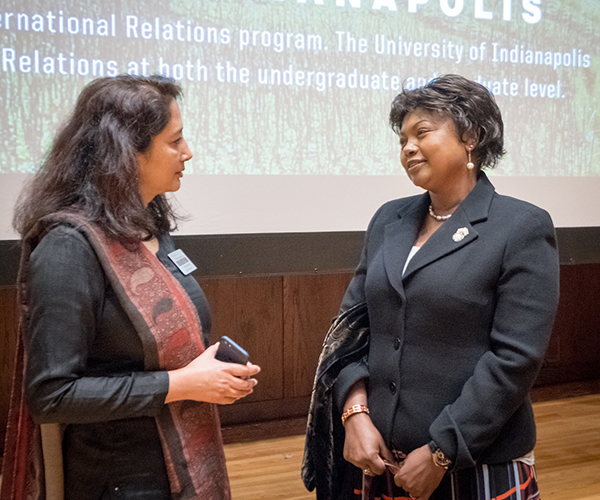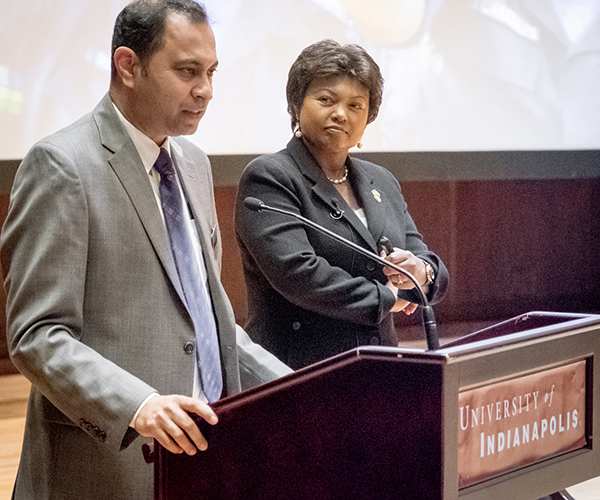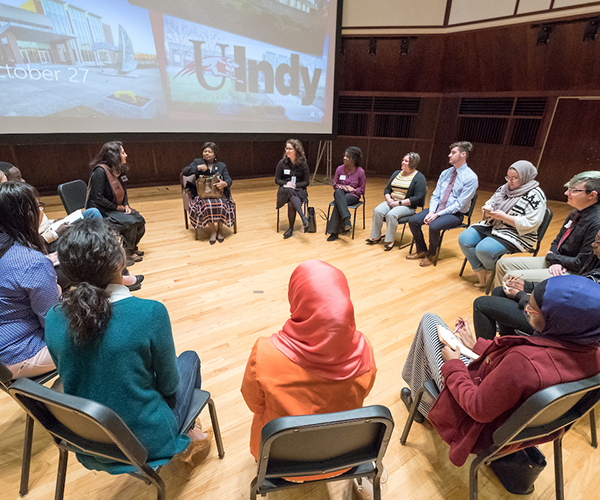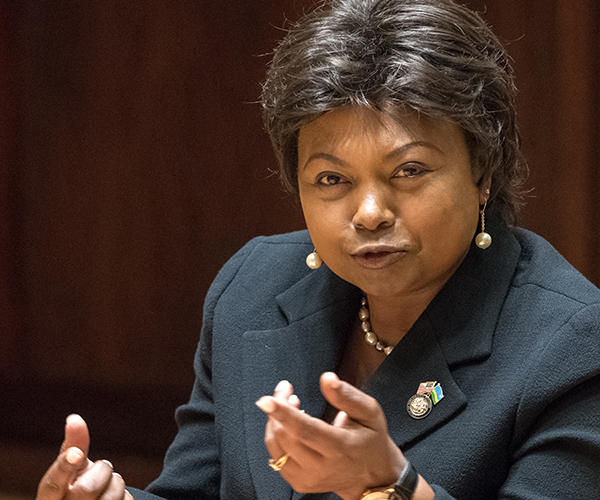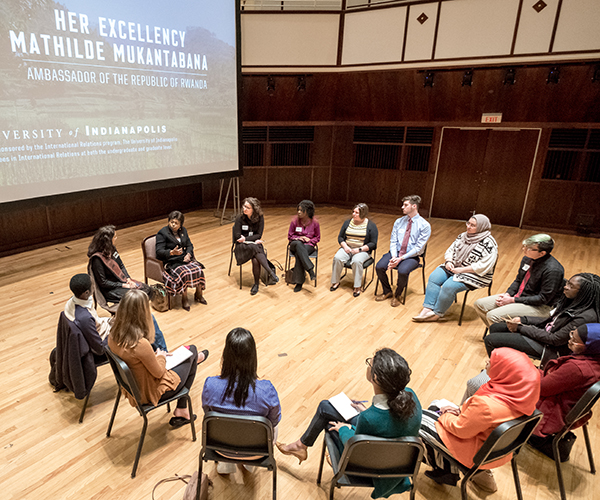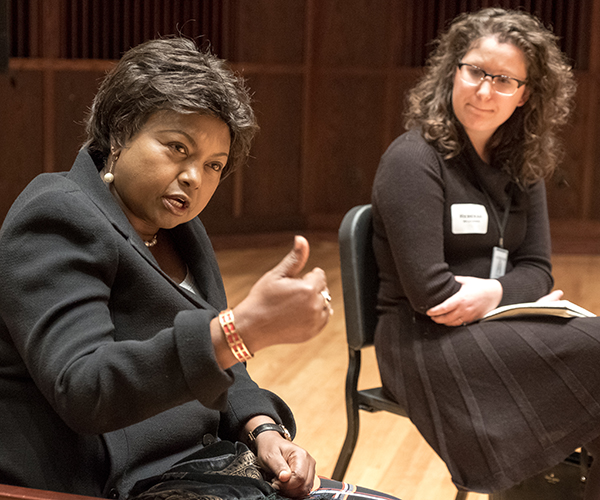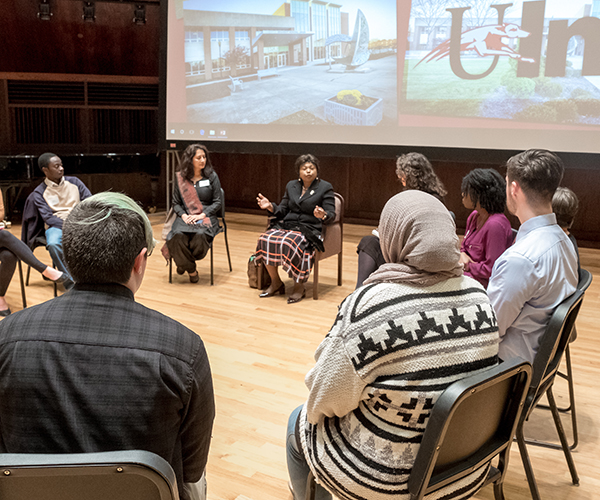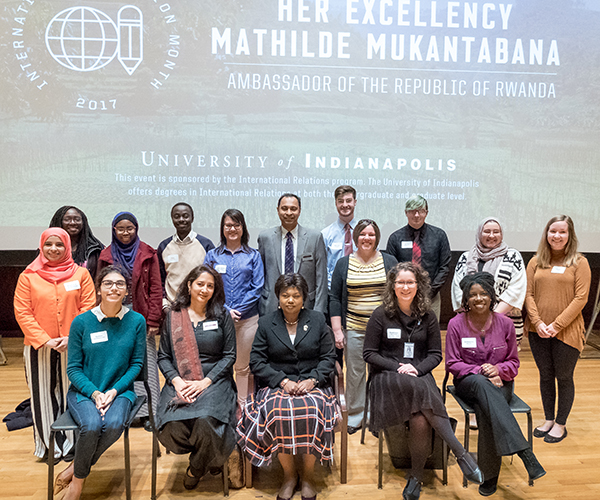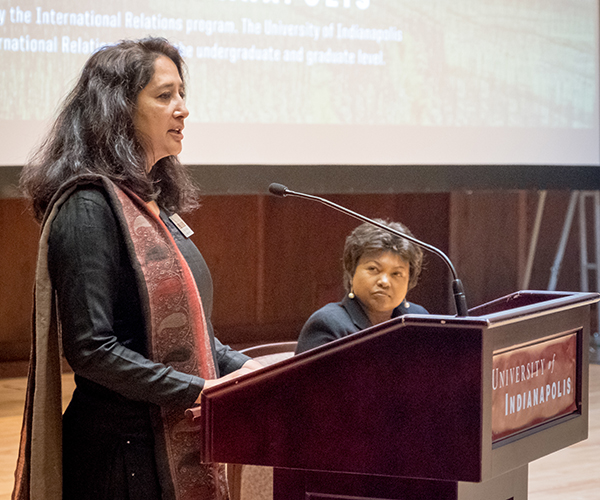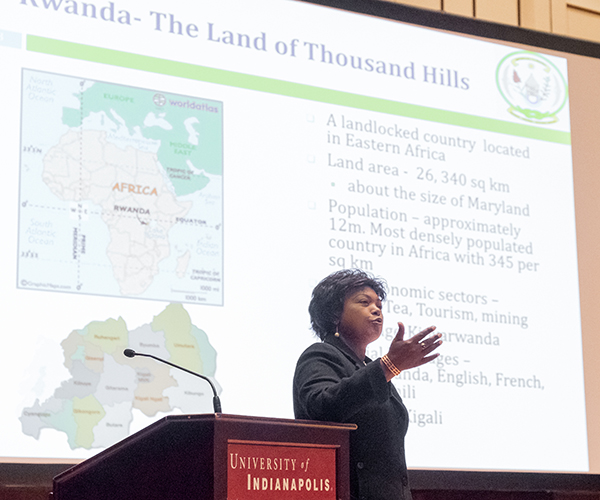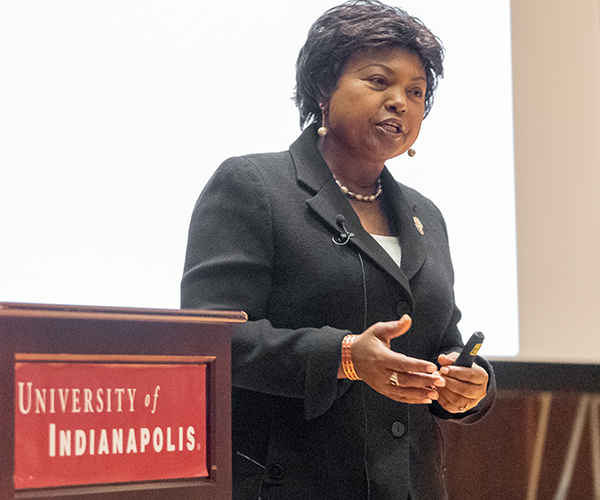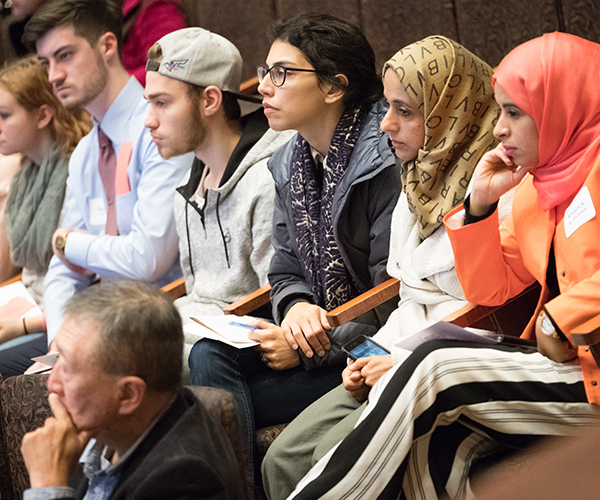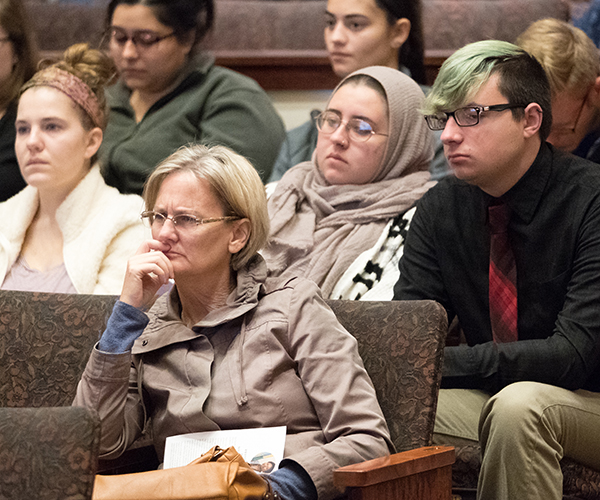Rwandan Ambassador Mathilde Mukantabana brings hopeful message of peace

Reconciliation, justice and empowerment were common themes during a talk given by Her Excellency Mathilde Mukantabana, the Rwandan ambassador to the United States. The University of Indianapolis welcomed Ambassador Mukantabana on Oct. 27 for a group discussion with students and faculty.
“You can’t appreciate what Rwanda is today without going back,” said Mukantabana, who discussed the magnitude of the 1994 Rwandan genocide against the Tutsi people, which claimed more than 800,000 lives. Noting that the genocide left no family untouched, Mukantabana outlined how her country continues to recover from the tragedy and sets an example in its approach to development.
“It was an uphill battle because there was no road map,” said Mukantabana. She explained that Rwandans made the decision to focus on national unity and disavow the tribal politics that led to unimaginable violence 23 years ago.
Mukantabana, who was forced to flee her Rwandan home in 1973 to escape escalating violence, lost numerous family members in the genocide, including her parents and siblings. In response to that horror, Mukantabana launched a social work program at the National University of Rwanda to train students to work in local governments or non-governmental organizations and to help survivors deal with the trauma of genocide. She also co-founded and became president of the Friends of Rwanda Association and served as executive producer of “The Rwandan Night,” a documentary about the genocide.
Learn more about UIndy’s international relations program here.
Since the genocide, Rwanda has taken significant steps towards healing and reconciliation, including the creation of the National Unity & Reconciliation Commission in 1999. The country also has made use of traditional courts as part of the peacebuilding process.
“You can’t talk about forgiveness or reconciliation when there is no sense of justice. How do you judge 3 million people?” the ambassador said.
The visit to the UIndy campus was coordinated by Jyotika Saksena, who directs the International Relations Graduate Program on campus. Provost Stephen H. Kolison, Jr., said the perspective and insight provided by Mukantabana aligns with the University’s vision of expanding its intellectual life by teaching students of the interconnectedness of the world around them.
Governance and sustainable development, including programs to improve the lives of Rwandans living in poverty, have played a significant role in Rwanda’s growth. The country’s system of inclusive ownership builds a sense of community through homegrown solutions and gives people agency, Mukantabana said.
Other notable developments include a larger role for women in positions of power. “The empowerment of the people is for all people,” she said, noting that 64 percent of Rwandan’s parliament is female.

